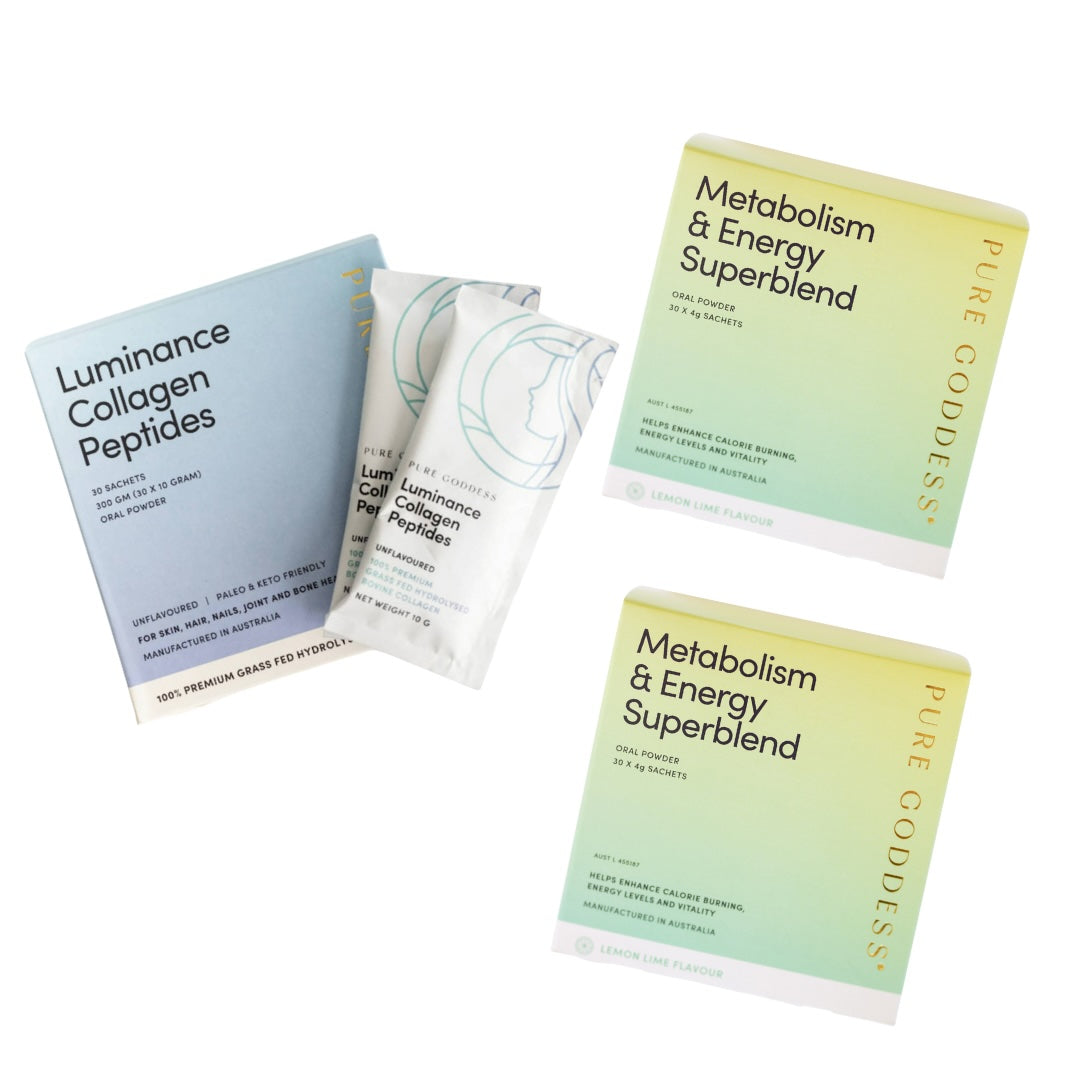Signs You’re in Perimenopause (Even If Your Period Is Still Regular)
If you’re in your 40s (or even your late 30s) and starting to feel like your body and mind are shifting, your sleep is suddenly unreliable, your moods are all over the place, your energy is inconsistent, and your usual go-to healthy habits aren’t working like they used to, there’s a good chance you’re in perimenopause. Even if your period is still regular. And even if no one’s mentioned the word “perimenopause” to you yet.
One of the most misunderstood facts about perimenopause is this: you can be in it for years before your period changes. In fact, many women experience some of the most frustrating symptoms, like weight gain, brain fog, anxiety, or insomnia, before they notice any change in their menstrual cycle. So, if you’ve ever thought, “I feel different, but my period’s still on time so it can’t be hormonal,” it might be time to take a closer look.
Here’s what’s actually happening beneath the surface, and the signs your body may be sending that perimenopause has already begun.
What Is Perimenopause, Really?
Perimenopause is the transitional phase before menopause, when your hormone levels, especially estrogen and progesterone, start to fluctuate. It can last anywhere from 2 to 10 years, often beginning in your early to mid-40s. Menopause itself is technically one single day: it marks 12 months since your last period. Everything leading up to that is perimenopause.
During this time, your ovaries are still functioning, and you may still be ovulating (at least some of the time), but your hormone production is becoming less predictable. Estrogen may spike high one month, then crash low the next. Progesterone, the calming, balancing hormone, begins to decline more steadily, often leading to an imbalance known as estrogen dominance.
This hormone chaos can cause a wide range of symptoms, even when your period appears to be “normal.” And because so many women are taught to associate menopause strictly with hot flushes or skipped periods, they miss the signs and suffer in silence.
10 Common Signs You’re in Perimenopause (Even If Your Period Is Still Regular)
1. Waking at 3am or Struggling with Sleep
One of the first clues your hormones are shifting is disrupted sleep. You may fall asleep easily, only to wake at 2 or 3am with a racing mind, sweating, or anxiety that feels out of nowhere. This is often due to low progesterone, cortisol spikes, or blood sugar imbalances driven by estrogen fluctuations.
2. Unexplained Weight Gain or Belly Fat
If your diet and exercise haven’t changed but your waistline has, it could be hormones, not willpower. Declining estrogen impacts insulin sensitivity and fat storage, especially around the middle. Lower progesterone and increased cortisol also contribute to water retention, bloating, and stubborn weight gain in perimenopause.
3. Anxiety, Mood Swings, or Irritability
Sudden mood changes, especially anxiety or rage that seems disproportionate to the situation, are hallmark signs of perimenopause. Estrogen impacts serotonin (your feel-good neurotransmitter), while progesterone has a calming effect. When both are fluctuating, emotional stability can take a hit.
4. Brain Fog or Forgetfulness
Losing your train of thought mid-sentence? Walking into a room and forgetting why you went in there? Struggling to focus or retain information? These cognitive changes are extremely common and tied to hormone shifts, especially fluctuating estrogen and cortisol.
5. Increased PMS or Breast Tenderness
If your premenstrual symptoms are getting worse, even if they were mild before, it’s often a sign of estrogen dominance. You may feel more irritable, bloated, teary, or get more intense breast tenderness in the week before your period.
6. Lower Tolerance to Stress
That sense of being overwhelmed or overstimulated by things that never used to bother you, like noise, clutter, multitasking, or even social situations, is a subtle but powerful sign that your nervous system is being impacted by hormonal changes. Low progesterone and high cortisol are often involved here.
7. Changes in Libido or Vaginal Dryness
Your sexual health is directly influenced by estrogen, testosterone, and circulation. You may still have a regular cycle but notice reduced interest in sex, increased vaginal dryness, or discomfort with intimacy, all early signs of perimenopause.
8. Random Bloating or Digestive Upset
Estrogen and progesterone impact gut motility and fluid balance. When they fluctuate, you may experience unexplained bloating, constipation, or even food sensitivities. Many women also report increased gut issues or IBS-like symptoms in perimenopause.
9. Irregular Sleep-Energy-Mood Patterns
One day you feel amazing, energised, and clear-headed. The next, you’re dragging through fog, can’t focus, and feel like you’re stuck under a cloud. This unpredictability, especially when linked to your cycle, is classic perimenopause.
10. Cycle Is “Normal” but You Feel Anything But
Yes, you can still have a textbook 28-day cycle with regular bleeding, but if the flow is heavier, your cramps are worse, or you’re noticing mid-cycle spotting, clots, or ovulation pain, it may be your body’s way of signaling hormonal dysregulation behind the scenes.
Why Doctors Often Miss It
Because many medical professionals are trained to look for skipped periods or hot flushes as the key indicators of menopause, they often miss perimenopause in women who still menstruate regularly. As a result, women are often told they’re “fine,” prescribed antidepressants or birth control, or left feeling dismissed when they describe their symptoms.
But perimenopause isn’t about your period alone, it’s about what your hormones are doing all month long.
How to Support Yourself in Perimenopause
The good news? You don’t have to suffer through it. With the right support, lifestyle changes, and supplementation, you can ease symptoms, rebalance hormones, and feel more like yourself again.
Supportive steps include:
-
Eating a blood sugar–friendly, anti-inflammatory diet
-
Prioritising protein, fiber, and healthy fats at every meal
-
Strength training and walking regularly
-
Managing stress with breathwork, journaling, or adaptogens
-
Tracking symptoms with a perimenopause journal or app
-
Supporting gut and liver health for hormone detox
-
Considering supplements like magnesium, collagen, B-complex, and glucomannan
-
Exploring bioidentical HRT or progesterone therapy with a qualified provider
At Pure Goddess, we specialise in products and education designed to help women thrive, not just survive, through perimenopause and menopause. Whether you're looking for natural support for energy, metabolism, gut health, or weight balance, our formulas are built specifically for this phase of life.
Final Thoughts: Trust What Your Body Is Telling You
Perimenopause doesn’t always announce itself with skipped periods or hot flushes. Sometimes it starts quietly, through anxiety, fatigue, weight gain, restless sleep, or just the sense that “something is off.” The most powerful thing you can do is listen to those whispers before they become shouts.
You don’t need to wait until your period disappears to get support. If you’re feeling symptoms, you deserve answers, solutions, and a community that sees you and supports you.
Looking for your next step? Download our FREE Perimenopause Symptom Tracker or explore our best-selling Metabolism & Energy Superblend, created by women who’ve walked this path and found real solutions.









Leave a comment
This site is protected by hCaptcha and the hCaptcha Privacy Policy and Terms of Service apply.